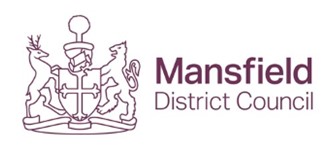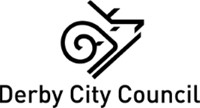PHOTO: Brassington, Derbyshire
The Midlands Net Zero Hub is funded by the Department for Energy Security and Net Zero as part of the government’s clean growth strategy and is hosted by Nottingham City Council. The Hub is supported by D2N2 LEP and is one of five local Net Zero Hubs in England.
The local Net Zero Hubs aim to facilitate investment into decarbonisation projects, increasing the number, quality and scale of those being delivered across the regions. The Midlands Net Zero Hub works with their partners across the Midlands to support projects from the earliest stages of feasibility and development through to investment readiness and delivery.
One aspect of the Net Zero Hub’s work is their Feasibility Studies, aimed at supporting rural communities to improve their energy resilience and decarbonise.
The Midlands Net Zero Hub is supporting the Feasibility Study for Brassington Heating Community Interest Company (CIC).
Brassington is a village in Derbyshire, near Carsington Water, south west of Matlock. It has 233 houses, a primary school, two pubs and a village hall. 15 of the houses are holiday lets, 14 are second homes and 15 are listed as unoccupied. There are some farm buildings on the edge of the village, but no other business premises.
Brassington is not on the main gas grid, so most of the houses are heated by oil or LPG. As far as we are aware, 9 of the houses have individual air source heat pumps; 8 of these are Housing Association properties in the middle of the village.
A heat network could offer an effective way of reducing the high carbon impacts of heating and hot water use in the village. It would also enable the removal of oil and LPG tanks, improve air quality in the village and remove the liability of replacing defunct boilers from individual householders.
Brassington offers several challenges: the houses are mostly pre-1900, there are very few commercial energy users, the roads are very narrow and many of the roads are built directly on to the bedrock making installing the pipework difficult. There is a 43m gradient across the village, and the geology is not very suitable for ground source boreholes.
The only viable and sustainable solution appears to be to use air source heat pumps using electricity from Carsington wind farm. However, even this option only just breaks even over 30 years with a small rate of return over 40 years, despite receiving 50% capital funding through the Green Heat Network Fund. This leaves little margin for error.
If fuel prices are to remain high for a sustained period of time, if a way were to be found to sell carbon credits from the scheme, if prices for heat networks fall or funding for smaller schemes becomes available, then a heat network might become viable in the future.
If successful, the scheme will help to reduce fuel bills and carbon emissions for the residents.
Key facts and figures
- 827 kW project size
- 700 Tonnes of CO2 saved per annum
Further information on the Feasibility Study
D2N2 Local Enterprise Partnership (LEP) covers the Derby, Derbyshire, Nottingham and Nottinghamshire region, convening the businesses, universities, colleges and local authorities in our region to drive low carbon, economic growth and productivity, skills & careers, inclusion and delivery excellence. The D2N2 LEP team and functions will transition into the East Midlands Combined County Authority (EMCCA) during 2024.
For media enquiries, contact:
Nicola Swaney
Head of External Affairs, D2N2 LEP
Nicola.Swaney@d2n2lep.org





























